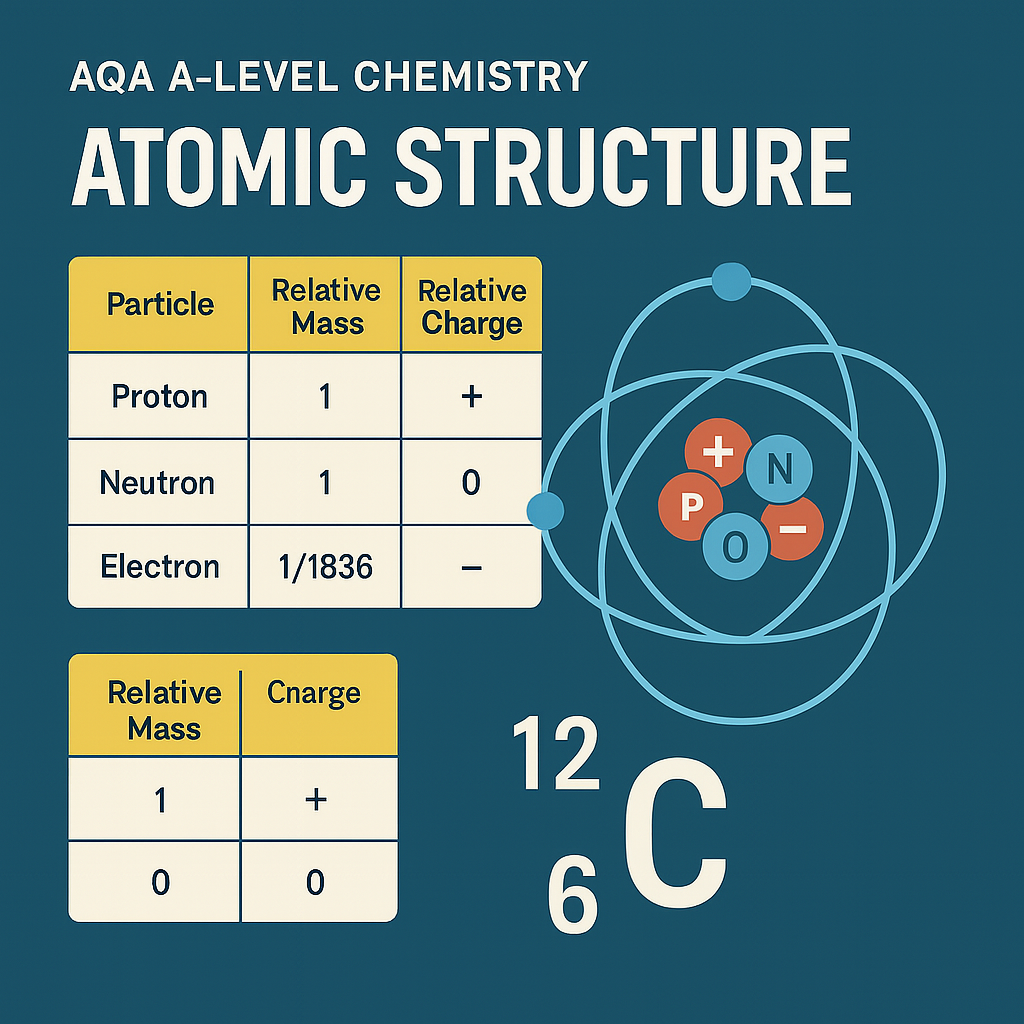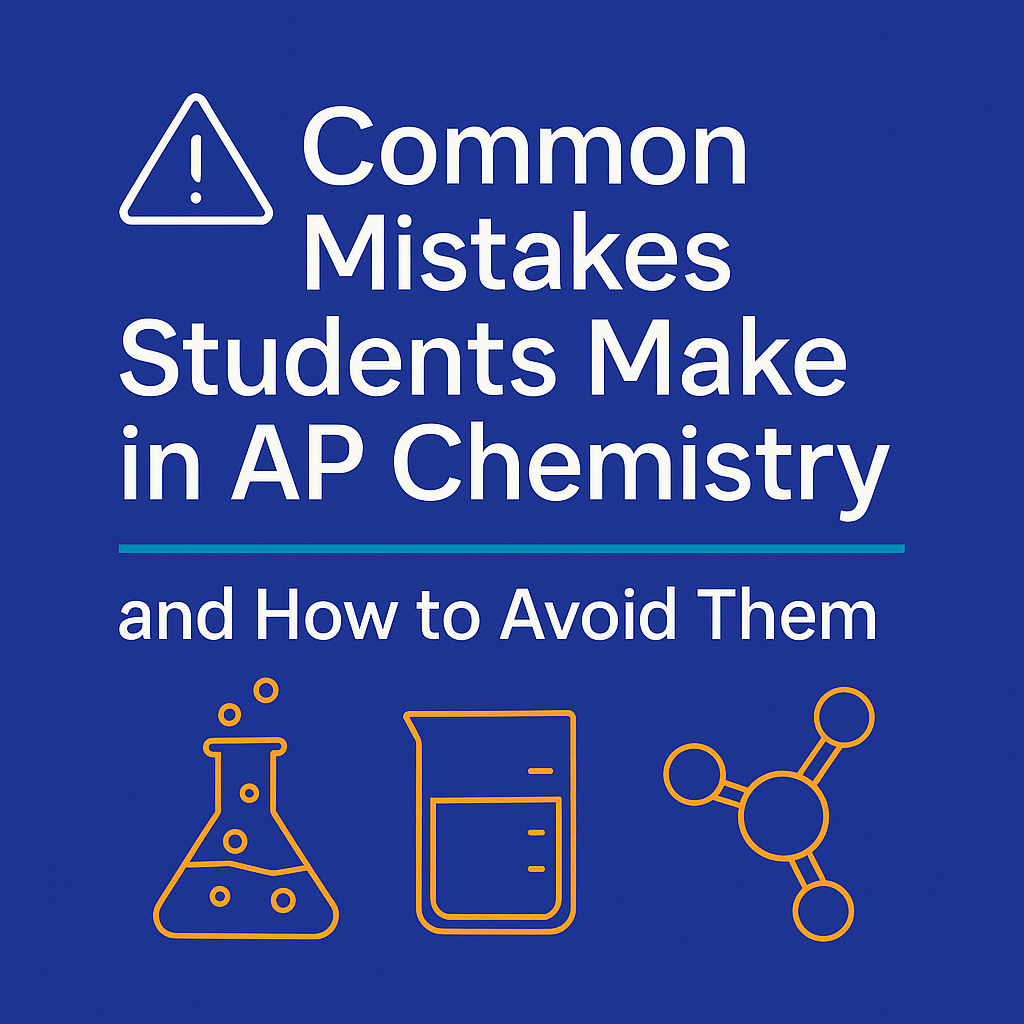How to Get an A in A-Level Chemistry: Tips from a Tutor
An A in A-Level Chemistry is 100% achievable — not through luck, but through consistent effort
Getting an A in A-Level Chemistry isn’t just about natural ability — it’s about knowing how to learn, revise, and apply the material strategically. As a tutor who’s helped hundreds of students achieve top grades, I’ve seen exactly what works (and what doesn’t).
This guide is for students aiming for an A or A* and looking to improve their technique, not just their knowledge. Whether you're in Year 12 or heading into final revision, these are the habits and methods that make a real difference.
Know Your Specification Inside Out
Every exam board — AQA, Edexcel, OCR A/B — has its own structure, emphasis, and way of wording questions. Your spec tells you exactly what you need to learn, and often gives subtle clues about what’s likely to come up.
Download your spec, print it, and tick off topics as you go. Use it as a checklist and a roadmap — not an afterthought.
Master the Core Topics First
Certain topics come up year after year and underpin everything else:
Atomic structure and bonding
Redox and calculations involving moles
Organic chemistry mechanisms
Equilibria and rates
Acids, bases and buffers
If you don’t fully understand these, the later topics (like transition metals or spectroscopy) become much harder. Focus first on mastering these foundations before trying to memorise every detail.
Practice Past Papers Early — and Often
Top students don’t just revise content — they practise how to apply it.
Start using past papers at least halfway through Year 12. You don’t need to do full papers all at once. Instead:
Practise questions by topic as you learn
Time yourself for short sections
Mark your own answers using the official mark scheme
Pay close attention to command words like “Explain”, “Calculate”, “State”, or “Suggest”
Over time, this builds exam technique, timing, and confidence.
Mark Schemes Are Your Secret Weapon
One of the biggest differences between a B-grade student and an A-grade one? The ability to give the examiner exactly what they’re looking for.
Learn the phrasing used in mark schemes
Use it to self-mark and rewrite your answers
Don’t just focus on what you got right — focus on how marks are awarded
If you can think like an examiner, you’ll start writing answers that score higher even when your understanding is the same.
Don’t Ignore the Required Practicals
Every paper includes questions related to the required practicals. Make sure you understand:
The purpose of each practical
How to record and process data
Common sources of error
How to evaluate results and improvements
You don’t need to memorise methods word-for-word — but you do need to know the scientific reasoning behind them.
Study Smarter, Not Just Longer
Top grades come from strategic revision, not endless hours with a highlighter.
Instead, use active methods:
Flashcards (digital or paper)
Blurting (write everything you remember on a blank page, then fill gaps)
Teaching the content to someone else
Practising exam questions
Creating one-page summaries
Keep your revision specific, measurable, and exam-focused — not vague or passive.
Get Help When You Need It
A-Level Chemistry is hard. Everyone hits a wall at some point — that doesn’t mean you’re not smart enough, it just means you might need a different explanation or some guidance.
Whether it’s asking your teacher, working with friends, or booking a tutor, getting help early can prevent small gaps from becoming major obstacles later.
Final Thought
An A in A-Level Chemistry is 100% achievable — not through luck, but through consistent effort, smart revision, and strong exam technique. Focus on understanding the spec, practising like it’s the real thing, and developing your exam skills as much as your knowledge.
If you’d like tailored help breaking down difficult topics or refining your revision strategy, book a free session and get expert support to help you reach your target grade.





Understand AQA A-Level Chemistry Section 3.1.1.2 on mass number and isotopes. Learn key definitions, isotope notation, calculations, and how this topic builds your scientific and exam skills.